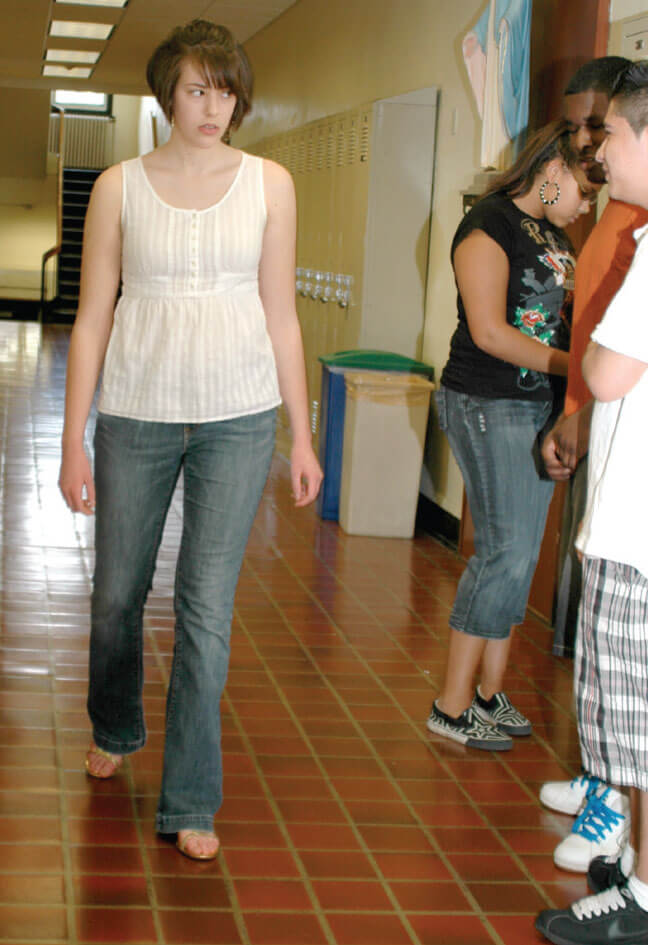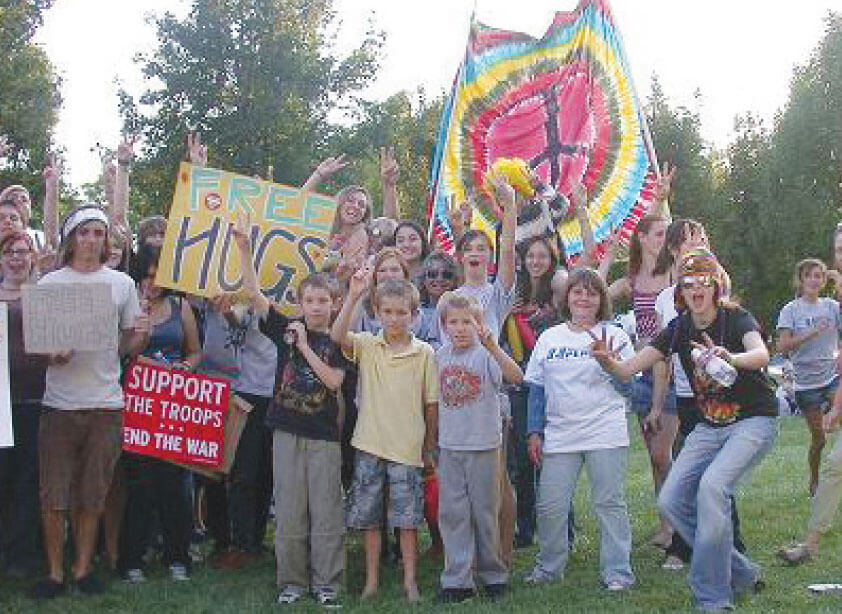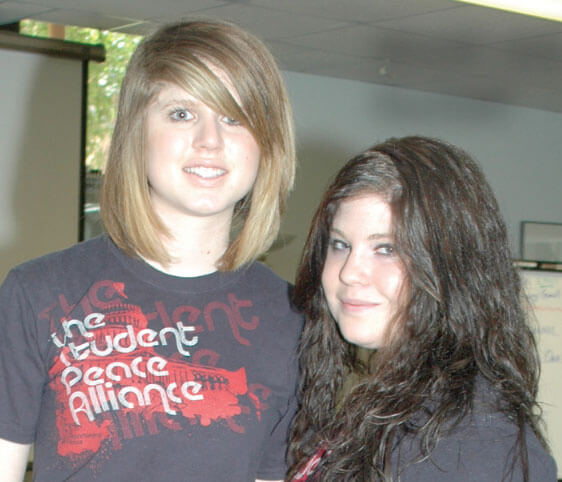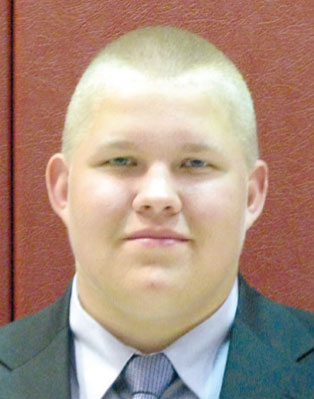by Sara Schulte

“Katie, honey, Daddy’s gone.” Her voice was quiet; I could barely hear it through the fog that suddenly enveloped my senses. I went numb as my sister pulled me into a firm hug and walked me into the living room, backpack still on as I dropped to the couch. I couldn’t look at anyone. I sat with my sister, my face buried in her shoulder like a child. I wasn’t crying, but I just couldn’t face anyone.
The next few days swirled around me as neighbors brought casseroles, breads and desserts — as if we were the ones too sick to feed ourselves, like Dad had been for the last three months. Surprisingly, it did help. Deciding what to do with all that food gave us something to organize: getting dishes into the freezer, eating what we could.
At times, we even found humor in the situation. It might sound cold to someone outside, but sitting around our large dinner table with February sun warming us thorough the large dining room windows, we all laughed when my sister commented, “We may not have Dad, but thank God for these cinnamon rolls.” We understood each other in a way no outsider could.
As I lay awake at night trying to figure things out, I felt the comfort of knowing that everyone in the house was probably doing the same. My friends, on the other hand, didn’t know what to say. And I didn’t know what to say to them. It was like I had turned into “the girl whose father died” — someone completely different from who I had been before.
My sisters went back to college and the house emptied. But I kept putting off going back to school. Going back could have been a comforting distraction if I expected it to be the same. But nothing was the same. No one else in my class had ever had a parent die.
So for two weeks I stayed home. On some days I felt less sad and had to work up fake tears to convince my mom that I couldn’t go to school. Finally one night she came into my room looking anxious but firm. “Sweetie, you need to go back to school. Waiting is only going to make it more difficult.” I nodded silently to her question, “Tomorrow?”

I couldn’t avoid it anymore. I waited for the cold, dirty bus, sat by my friend Kimberly, and pretended to sleep all the way to school.
It was strange, going through the same routine. Why couldn’t I feel like the same person? I was grateful for Kimberly’s awkward silence and secretly prayed to God that I could get through an entire day without anyone saying a word to me. I knew I couldn’t ask God to make Dad alive again, but I didn’t think it was too much to ask God to make me invisible for awhile. Maybe, if I could hide out long enough, “the girl whose dad died” would disappear and I could just go back to being Katie.
I unrealistically hoped that not many people were aware of Dad’s death. But that was too much to hope for in a small town. The teachers had known for a long time, since I had often gotten out of school early to go to visit Dad in the hospital when he had bad days.
Like the bus, school seemed the same. I walked down the halls, avoiding solemn stares from kids in my classes. The attention not only embarrassed me, but I felt ashamed of being afraid. What had happened to Katie, the messy, smart girl, who never did her homework on time (an identity I had never before been able to shake)? I didn’t know if I could ever be just Katie again.
Then I saw him. John Richards, one of the meanest guys in our class. I couldn’t bear to have him look at me like everyone else did — like he felt sorry for me. I was walking past him; my eyes fixed solidly on the floor, when he spoke. I cringed, expecting sympathy.
“Hey,” he said, “Why were you gone for so long? Did you go away to get your crooked teeth fixed?”
One of his friends gave him a serious look and said, “Shut up, John.”
I looked at him, stunned. My father just died and he’s making fun of my teeth? I couldn’t believe it. How could he not know? But he didn’t.
A month ago I would have been angry and embarrassed. But now I gave him a huge smile and walked by without saying a word. He didn’t know. I didn’t know how it was possible, but here was this kid, a total jerk, being a total jerk like he was every day of his life.
For the first time in two weeks I felt normal again.
The rest of the day I walked with my eyes up, and no sympathy could shame me into putting them down again. People knew. It seemed like almost everyone except John knew. They were being excruciatingly polite.
But better than all the sympathy in the world was the reminder that things would someday get back to normal (even if it was a new normal). God hadn’t made me invisible, as I had asked. Instead I’d been shown in an odd and unexpected way that I was still myself—that I would always be myself. No matter what happened or how I changed because of what happened, I was still me — crooked teeth and all.
“Blessed are those who weep now, they shall laugh.”
Luke 6.21
Student Peace Alliance

Rachell Farnham and Nicole Nabulsi know how to take this Beatitude seriously. They participate in the national youth campaign to establish a United States Department of Peace through the Student Peace Alliance. Rachell is the Student Peace Alliance national high school organizer; Nicole is the high school organizer for the state of California.
“I’ve always been interested in the peace movement, and peace has become my passion,” says Rachell. “I am a non-violent person, and my parents are divorced, so I’ve always dealt with conflict. I think that made me into a person who is always looking to solve the issue, rather than prolong it.”
“In the past five years I’ve had so many things happen to me,” says Nicole, explaining her commitment to the organization. “From one of my teen cousins committing suicide, to my aunt dying from drug issues, to domestic abuse. If I’ve experienced all of these deaths, how many other kids have experienced other violence-related events? It’s just not right and I wanted to do something about it.”
The Student Peace Alliance (which currently has 55 high school chapters) is part of a larger group known as The Peace Alliance.
If you think about it, doesn’t it seem weird that we have a Department of War and not a Department of Peace?” asks Nicole.
The Department of Peace legislation calls for:
- A Secretary of Peace, who will advise the president on peacebuilding needs, strategies, and tactics for use domestically and internationally.
- The creation of a Peace Academy to build a world-class faculty of peacebuilding experts. They will analyze peacebuilding strategies at the highest level, advise other branches of government, and facilitate the training of peacebuilders for domestic and international service.
- Funding to create and expand proven domestic peacebuilding programs in communities. For example: mediation training for police, firefighters, and other emergency services personnel; alternative dispute resolution techniques, peer mediation and nonviolent communication programs in public schools.
The bill to establish a Department of Peace is non-partisan. Rachell and Nicole’s groups are lobbying to get signatures of support from all members of Congress.

Rachell explains some of their lobbying efforts: “On a certain day we call our representatives to thank them if they do support the bill, (71 currently do). If they are not supporting the bill, we leave a message saying who we are and why we support the establishment of a Department of Peace. So teens from across the country are calling their representatives and voicing their support.
“Chapters also come up with their own creative and fun lobbying ideas. Last year in February my chapter made valentines to send to our representatives.. We took an hour and everyone sat down and cut up magazines and newspapers. On each card we explained why we support the Department of Peace and wrote: Happy Valentine’s Day, Support the Department of Peace.”
Nicole continues, “We had ‘Peace of the Pie Day.’ It was really fun. We all went to the capital, and no congressperson could resist us coming in with all these pies. So we sat and ate pie and talked with them about our ideas.”
Find out more about the Student Peace Alliance at peacealliance.org.
“Blessed are the peacemakers, they will be called children of God.”
Matthew 5.9
Which kind of beatitude person do you aspire to be?

“Blessed are the meek, for they shall inherit the land.”
I want to be someone who can listen with patience, and supply a response only after hearing all that needs to be said. I want to help find common ground in disagreements and try to build bridges between the sides.
Danny V., St. Francis Xavier Church, Sartell, MN

“Blessed are the clean of heart, for they will see God.”
I can live out this beatitude by keeping God, not material possessions, first in my life; by showing kindness and love to others and by always doing the right thing.”
Grant W., St. Francis Xavier Church, Sartell, MN
